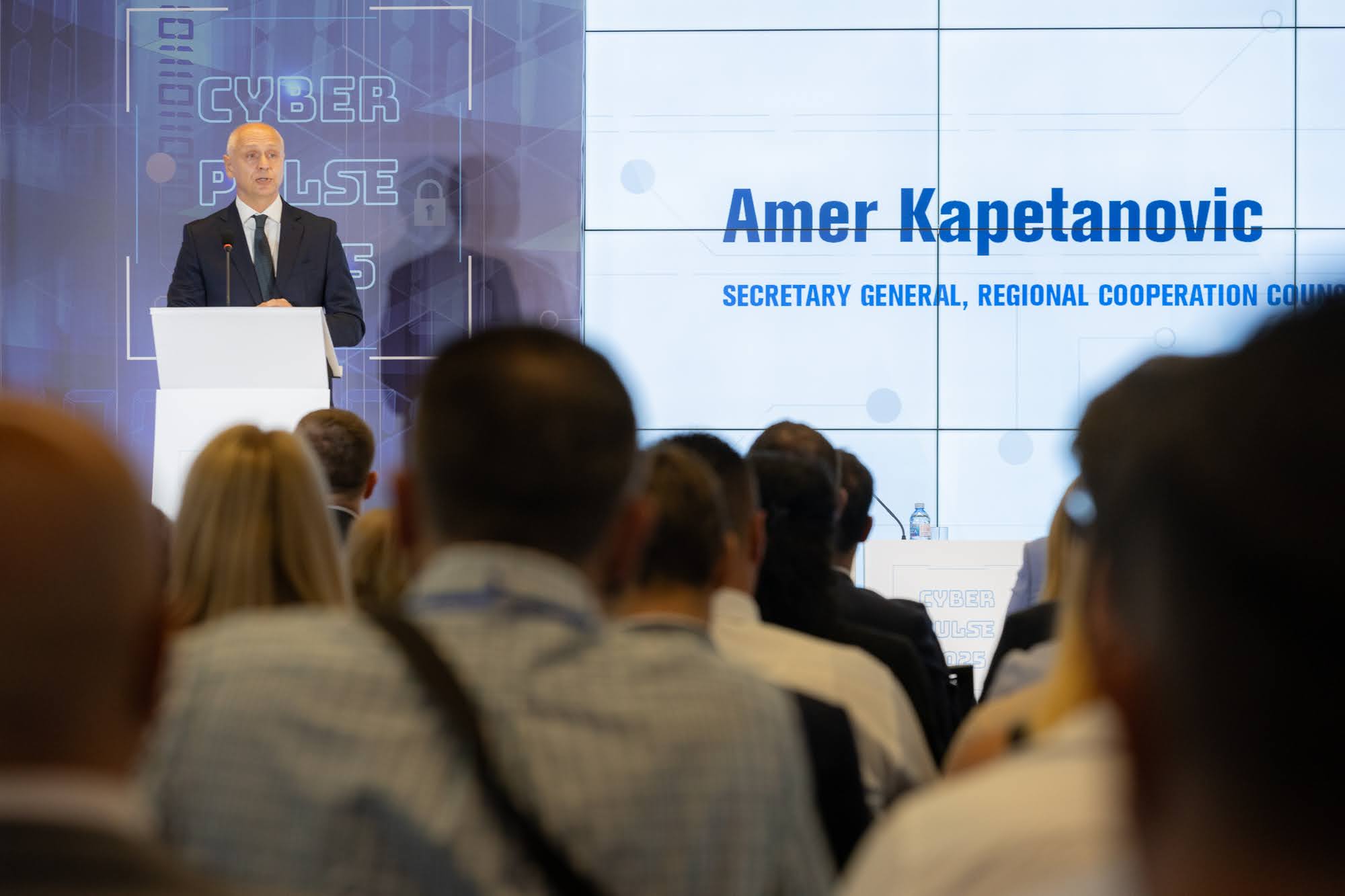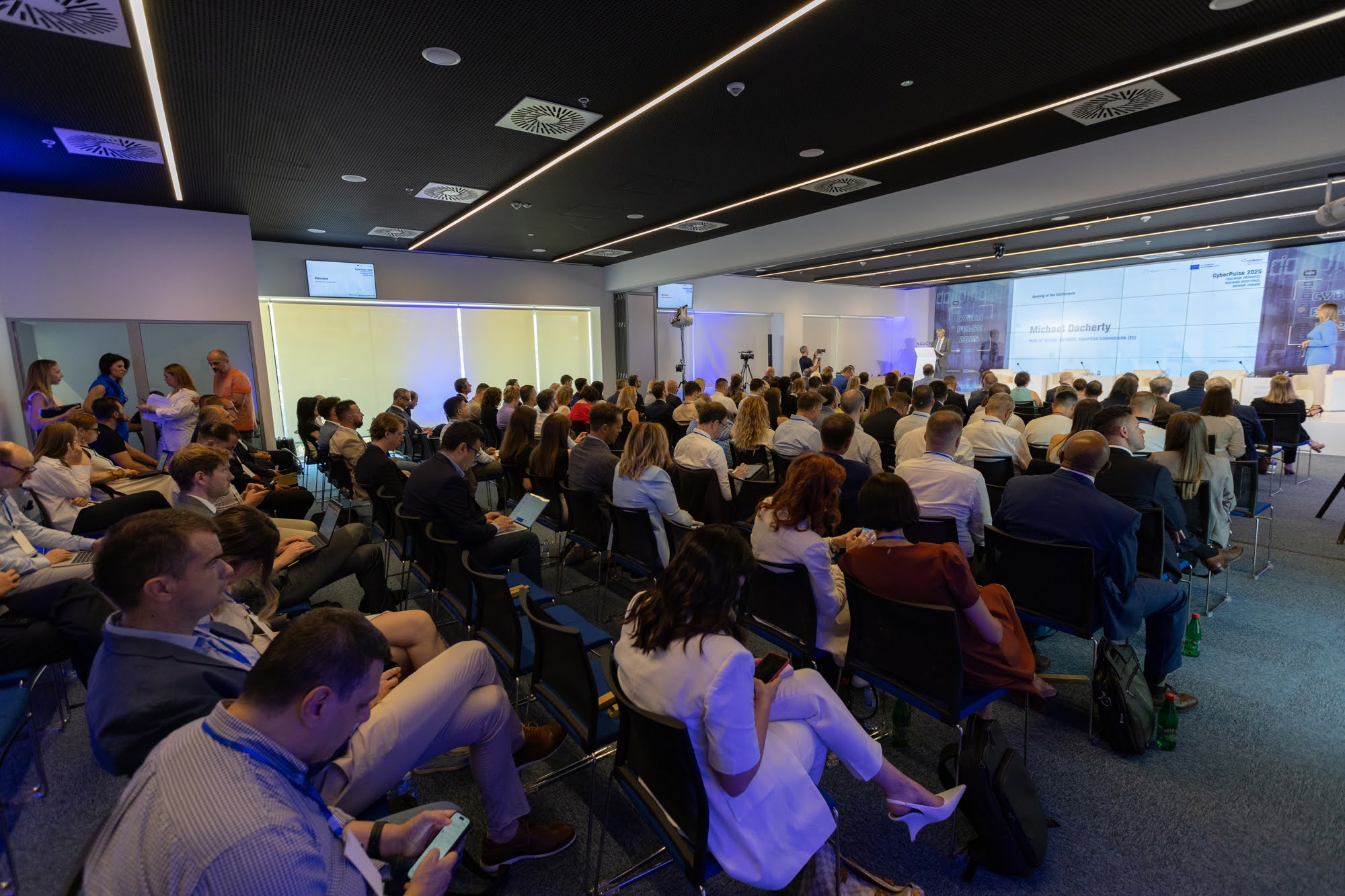RCC: Western Balkans CyberPulse 2025 Conference Opens in Podgorica Kapetanovic Calls for Stronger Regional Cooperation against Cyber Threats
02 July 2025

RCC Secretary General Amer Kapetanovic opened the High-Level Western Balkans Cybersecurity Conference – CyberPulse 2025: Tracking Progress, Building Resilience, Driving Change in Podgorica on 2 July 2025 (Photo: RCC/Danilo Papic)

High-Level Western Balkans Cybersecurity Conference – CyberPulse 2025: Tracking Progress, Building Resilience, Driving Change which took place in Podgorica on 2 July 2025 (Photo: RCC/Danilo Papic)
Podgorica – The High-Level Western Balkans Cybersecurity Conference – CyberPulse 2025: Tracking Progress, Building Resilience, Driving Change – kicked off today in Podgorica, gathering government representatives, regional and EU institutions, cybersecurity experts, and private sector leaders to address the growing threat of cyberattacks across the region.
Opening the conference, Secretary General of the Regional Cooperation Council (RCC), Amer Kapetanović, underlined the urgent need for collective resilience.
“Cybersecurity is not just about tech – it’s about trust, people, and partnerships. Our greatest firewall will be our shared goals and political will to reach them. The RCC will continue to champion coordinated regional efforts, because cyber threats are borderless, and so must be our response.”
Cyber incidents in the Western Balkans rose by 40% in the past year, while ransomware attacks skyrocketed by 200% in just two years, with ransom demands averaging €150,000, and in some cases exceeding €1 million. While 85% of citizens in the region are online, the digital protection landscape remains underdeveloped. The region leads the EU in ICT education rates (7% of graduates in ICT fields vs. EU average of 4.5%), yet still faces a serious shortage of cybersecurity professionals.
Kapetanović announced the development of a new regional cybersecurity needs database, a joint effort by RCC, the European Commission, and IISG, which will be officially launched at the Donor Coordination Meeting held back-to-back with this conference.
Other opening speakers included Filip Ivanović, Deputy Prime Minister of Montenegro, who emphasized the need to align national capabilities with shared regional objectives, and Michael Docherty of the European Commission, who reiterated the EU’s strong support to Western Balkans cybersecurity cooperation. Gilles Schwoerer, Director of the Western Balkans Cyber Capacity Centre, spoke of the Centre’s growing role in training and regional capacity building.
The conference continues today with five thematic panels covering regional cybersecurity priorities, including the evolving role of AI and emerging technologies, cyber skills development, multisector strategies for security operations centres (SOCs), and cross-sectoral cooperation. Experts from Europol, ENISA, Women4Cyber, national cyber agencies, NGOs, and tech companies are among the panellists sharing insights and best practices.
CyberPulse 2025 is organised by the Regional Cooperation Council in partnership with the European Commission and the Western Balkans Cyber Capacity Centre.
Check out the Conference summary report here.



